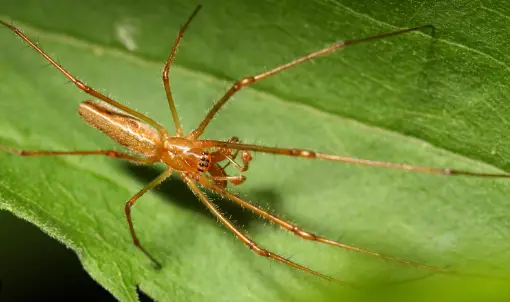I have been watching the behavior of different crawling creatures in my house for about five years, the spiders that play dead got my attention. These spiders usually curl their legs inward with no apparent movement.
The tonic immobility helps the spiders ward off potential threats or predators. It is also a mating ritual and a trick to ambush prey within their environment. I wrote this article to share some facts on the types of spiders playing dead .
How Long Can A Spider Play Dead?
A spider can play dead for about a few minutes to several hours. But the exact duration varies depending due to the species, age, and health of spiders.
The notorious behavior is an impressive survival tactic for these types of spiders. When threatened, they will freeze up and appear lifeless to deceive predators or perceived threats.
Some spiders have been known to hold their breath and slow down their heart rate to conserve energy and stay motionless for long periods of time. This allows them to remain undetected by predators or prey. (Source: American Museum of Natural History).
It’s worth noting that playing dead is not always an intentional behavior, and some spiders may become immobile or unresponsive due to stress or illness. In some cases, spiders may even enter a state of torpor, a state of decreased metabolic activity that is similar to hibernation.
Spiders That Play Dead With Pictures
Spiders play dead for several reasons. The main reason is the defense mechanism against a perceived threat within the vicinity and mating purpose. Below are 10 spiders that play dead more often:
Goldenrod Crab Spider
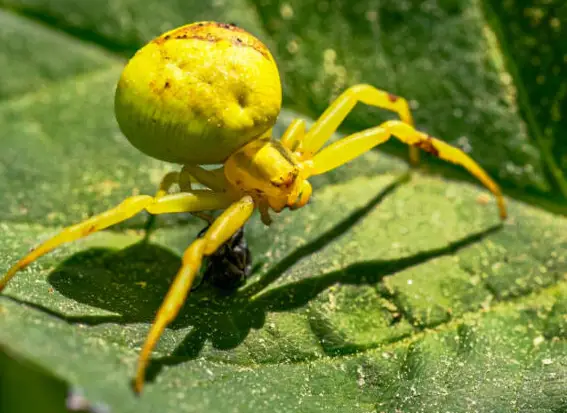
When threatened, the goldenrod crab spider will often curl its legs inwards and remain motionless, blending in with its surroundings. It may also release a chemical that mimics the scent of a dead insect to deter predators.
Jumping Spider
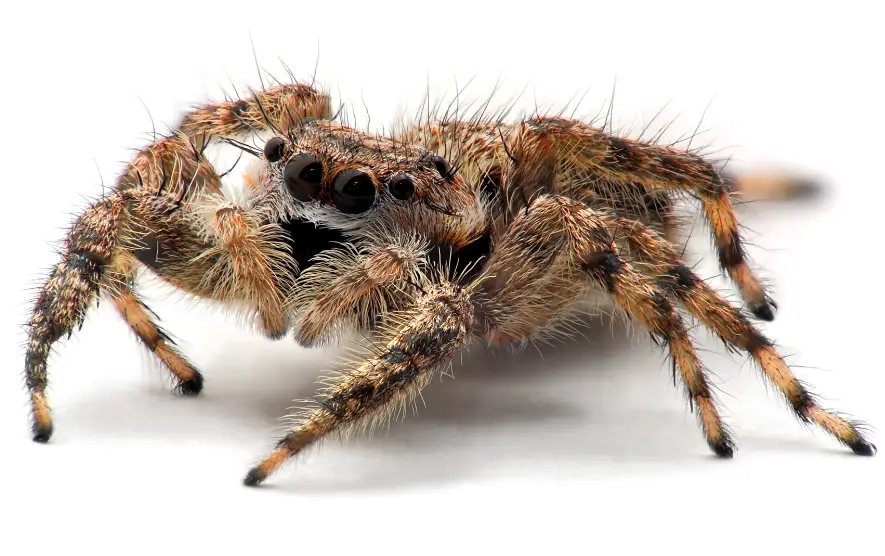
Some species of jumping spiders will drop to the ground and remain motionless when threatened. They may also curl their legs inwards and tuck their pedipalps (sensory appendages near their mouth) under their body.
Orchard Spider
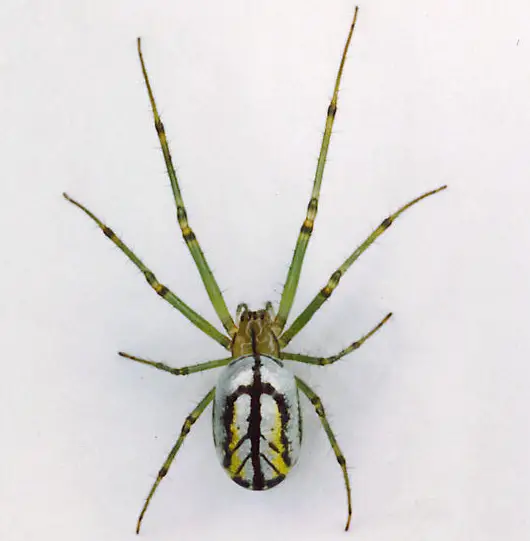
The orchard spider will often drop to the ground and remain motionless when threatened, sometimes even curling up into a ball.
Common House Spider
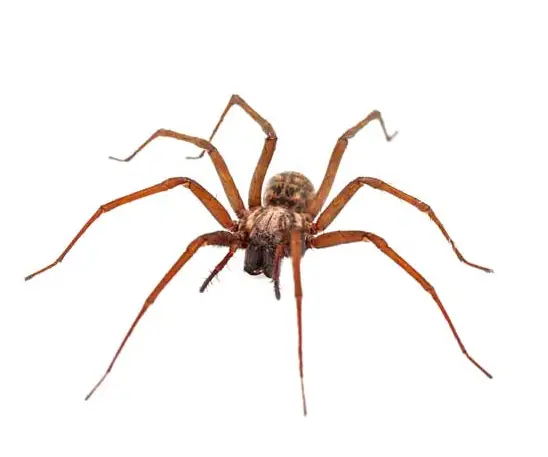
When threatened, the common house spider will often curl up into a tight ball and remain motionless. It may also release sticky silk that makes it difficult for predators to hold onto.
Wolf Spider
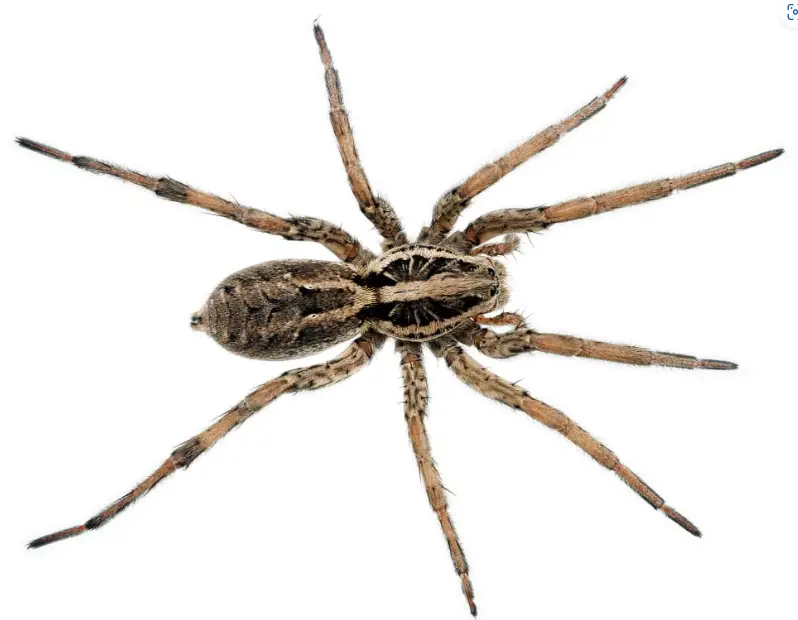
Some species of wolf spiders will play dead by lying motionless on their back with their legs curled up in the air. This behavior may help to deter predators that are looking for live prey.
The long-jawed orb weaver will often drop to the ground and remain motionless when threatened. It may also curl up its legs and tuck its body into a tight ball.
Fishing Spider
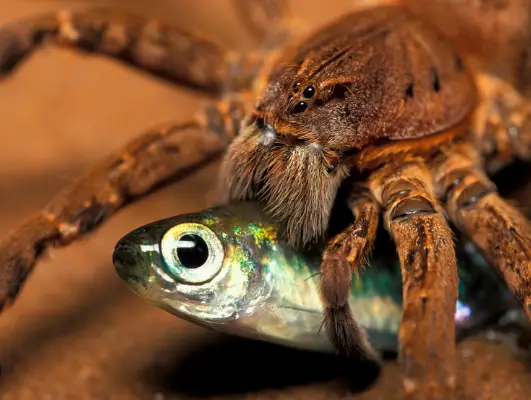
Some species of fishing spiders will play dead by floating on the surface of the water with their legs extended. This behavior may help to deter predators that are looking for live prey.
Nursery Web Spider
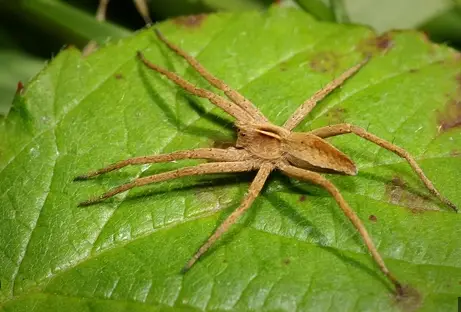
The nursery web spider will often drop to the ground and remain motionless when threatened. It may also curl up its legs and tuck its pedipalps under its body.
Cellar Spider
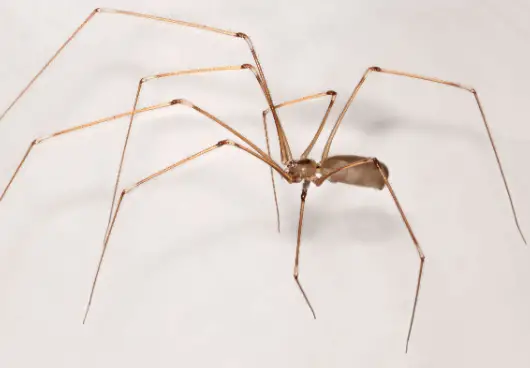
When threatened, the cellar spider may curl up into a tight ball and remain motionless. It may also release a chemical that mimics the scent of a dead insect.
Lynx Spider
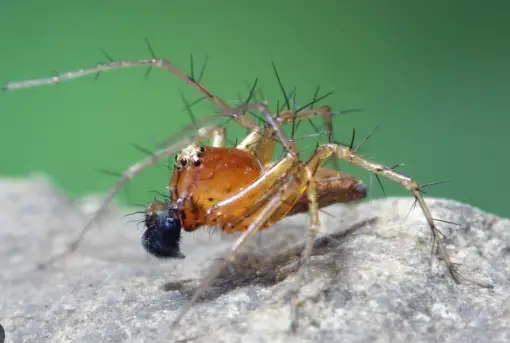
Some species of lynx spider will play dead by dropping to the ground and remaining motionless. They may also curl their legs inwards and tuck their pedipalps under their body.
Black Widow Spider
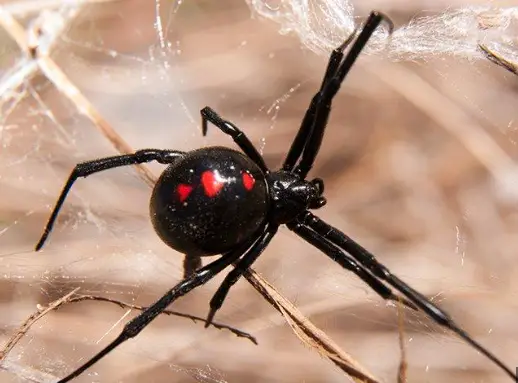
Black widow spiders (Latrodectus spp.) are known to exhibit a “playing dead” behavior when they feel threatened. When threatened, a black widow spider may drop to the ground and remain motionless, sometimes even curling up into a ball.
It’s important to note that playing dead is not the only defense mechanism that black widow spiders have since they are also known to bite when they feel threatened or cornered, and their venom can be potentially dangerous to humans.
Tarantulas
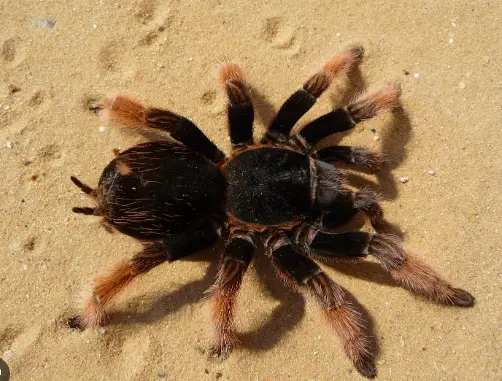
Tarantulas play dead when they feel threatened or attacked. They may become motionless and lie on their back, with its legs curled up in the air. It may also release some of its hairs that can cause irritation or inflammation if they come into contact with a predator’s eyes, nose, or skin.
Playing dead is a last resort defense mechanism for tarantulas, and they will typically only use it if they feel they have no other options to escape or defend themselves. In some cases, tarantulas may also try to bluff their way out of a confrontation by rearing up on their hind legs and displaying their fangs, warning potential predators to back off.
It’s important to note that playing dead is not a foolproof defense mechanism since some predators may still attack a tarantula even if it appears to be motionless. Tarantulas are not aggressive toward humans.
Huntsman Spider
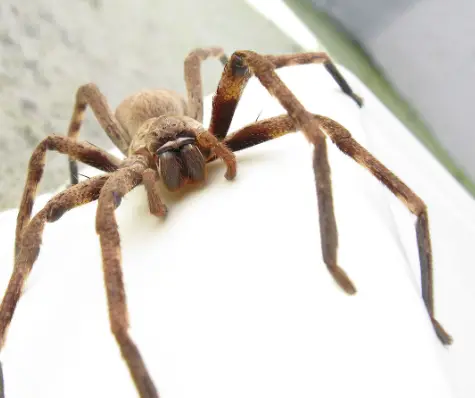
These are large and fast-moving spiders that are found in many parts of the world. When threatened, they play dead as a defense mechanism. When a huntsman spider feels threatened, it may freeze in place and remain motionless, hoping to avoid detection by a predator.
It may also flatten its body against a surface to make itself less visible, and it may even curl its legs up to resemble a dead leaf or twig. Some huntsman spiders may also release a chemical that mimics the scent of a dead insect, further convincing predators that they are not a threat.
Playing dead is just one of many defense mechanisms that huntsman spiders have at their disposal. Some species of huntsman spiders are also able to change color to blend in with their surroundings, making them difficult to detect.
Giant House Spider
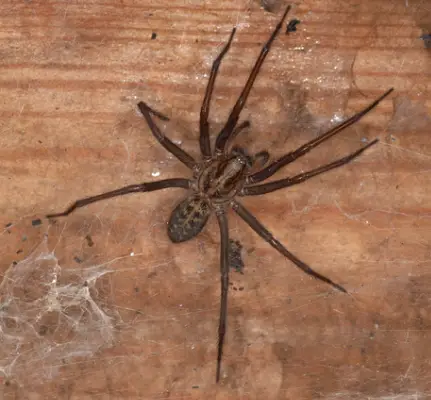
These are types of spiders common in Europe and North America. When threatened, they play dead as a defense mechanism. When a giant house spider feels threatened, it may freeze in place and remain motionless, hoping to avoid detection by a predator.
It may also curl its legs up tightly against its body to make itself less visible, and it may even “play possum” and fall over onto its back, appearing to be dead. This behavior can be effective at deterring potential predators, as they may assume that the spider is no longer a threat.
Playing dead is just one of many defense mechanisms that giant house spiders have at their disposal. They are also able to move very quickly and can use their large size to intimidate potential predators.
Southern House Spider
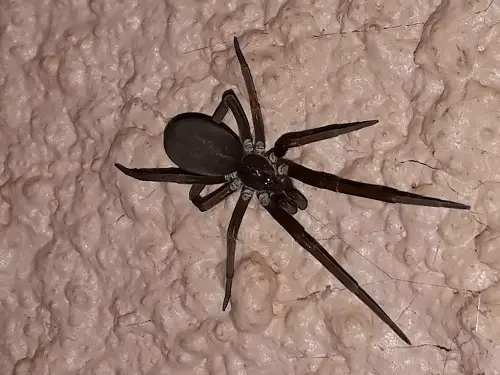
Southern house spiders are a type of spider commonly found in homes and buildings in the southern United States. When threatened, these spiders play dead as a defense mechanism. When a southern house spider feels threatened, it may freeze in place and remain motionless.
They may also curl their legs up tightly against their body to make themselves less visible or even drop to the ground and appear dead. This behavior can be effective at deterring potential predators from attacking them.
Most southern house spiders are venomous and can bite if they feel threatened or cornered. While their venom is not considered dangerous to humans, their bite can be painful and may cause some swelling or redness at the site of the bite.
Final Thoughts from Expert
Spiders that play dead have developed this defense mechanism as a way to avoid being detected and attacked by potential predators. This behavior involves the spider remaining motionless and curling up its legs, giving the appearance of being dead.
This can be an effective way for the spider to deter predators and avoid being eaten. While playing dead is just one of many defense mechanisms that spiders have at their disposal, it is a fascinating behavior that has been observed in a variety of species.
Some spiders, like the black widow and the huntsman spider, may also release chemicals that mimic the scent of a dead insect to further convince predators that they are not a threat. Despite the fear that spiders can often evoke in humans, note that they are an important part of the ecosystem and play a valuable role in controlling other pests.
While some species of spiders can be dangerous or venomous, most are harmless to humans and are actually beneficial to have around. Overall, the ability of spiders to play dead is just one of the many fascinating and complex behaviors that make them such fascinating creatures to study and observe.
People Who Read This Also Read:

